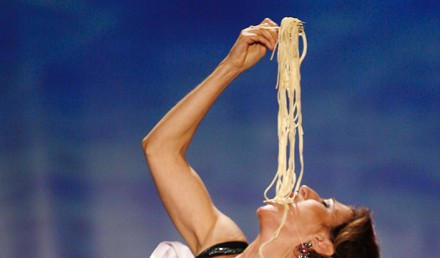
carbohydrates
If you’re thinking about this intelligently, scrapping toast and keeping ice cream isn’t the wisest choice. The toast – especially if it’s multi-grain – provides fuel that a volleyball player needs and is complementary to a balanced diet. The ice cream, not so much.
Our main point: carbohydrate isn’t the enemy that it’s been made out to be. For volleyball players and all other athletes, carbs are essential. They contribute to optimum muscle contraction and also promote better mental acuity for quick decision-making on the court.
Athletes have to remember that their nutrition needs are very different than the needs of a sedentary office worker who sits in front of a computer all day. When office workers cut down on carbs, it’s usually a good choice because they don’t spend a lot of time during their day contacting their muscles. But athletes do. They need carbs in every meal to give them the best opportunity to succeed.
The optimal amount varies
The amount of carbohydrate you eat should depend on your activity level during that day. If you’re going to practice for two or three hours instead of one hour, have an extra cup of cereal in the morning or an apple with your turkey sandwich at lunch in addition to a sports drink or a snack during practice. It’s especially important to increase carbohydrate intake on days you have a double practice session or a tournament. When you have a day off, you can skip the sports drink and eat a little less.
Morning carbs
Toast and pancakes are a good option if you choose whole grain and top them with almond or peanut butter and sliced bananas.
Cereal is a good choice, but look for one that doesn’t list sugar as the first or second ingredient and doesn’t contain high fructose corn syrup. That’s easier said than done. IF you have a favorite cereal that does have a lot of sugar, compromise. Mix it half and half with a low-sugar cereal like oat bran, oatmeal, muesli, bran flakes or Grape-nuts. Top your cereal with non-fat or low-fat milk or yogurt.
As a dairy source, try some Greek yogurt or kefir with your cereal. Fruit is always a good choice, either with cereal or on the side. Berries, apple slices, grapefruit, oranges. Don’t be boring. Too many athletes have a banana on their cereal every single day. Mix it up. Variety is good.
Smoothies work, too. Mix together fruit and non-fat or low-fat milk or yogurt. Almond milk is all the rage these days, but if you’re choosing it for a good source of protein, non-fat or low-fat milk or soy milk are better options.

carbs-body
Afternoon and evening carbs
Pasta, like carbs in general, isn’t the enemy. It’s true that you shouldn’t overload on it, but if you choose whole wheat rather than regular, red sauce with some veggies rather than cream sauce and eat it in moderation, its good fuel.
Other options: brown or wild rice, couscous, quinoa, lentils, sweet potatoes and corn. All of these provide a good source of fiber, vitamins and minerals.
Potatoes are fine in moderation, but don’t make the mistake of counting them as your vegetable and also gobbling another portion of carbs. If you have a potato, that’s your carb for the meal.
As for sandwiches, whole grain bread is a better choice than white – unless you’re 30 minutes away from a strenuous practice. Then white bread is preferable because your body can process it more quickly.
Veggies can be a great source of carbohydrate in your meals and snacks. Some to consider for higher carbohydrate content: butternut squash, beets, artichokes, green beans, onions, pumpkin, carrots, tomatoes, asparagus and broccoli. Be creative. You can turn the previous night’s dinner of chick, brown rice and veggies into a tasty, pre-practice lunch or snack. Remember to bring any leftovers in a cooler bag.
For similar articles, read Nutrition and Supplements.
For more articles check out Latest news.
Leave your comment on WoVForum.